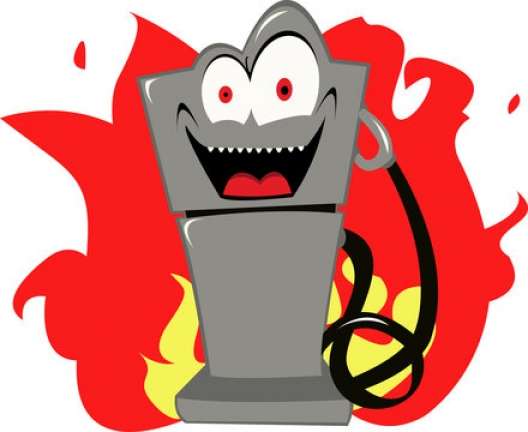Every year, millions of tons of electronic waste are generated worldwide. And with the ever-growing popularity of new technologies, that number is only expected to increase.
While it’s important to stay up-to-date with the latest and greatest gadgets, it’s just as important to know how to properly dispose of your old electronics.
Here are six things you need to know about recycling electronics:
1. Why recycle electronics?
As electronic waste (e-waste) continues to increase, so does the number of toxic chemicals being released into the environment. According to an electronic recycling company on their website, more than 50 million tons of e-waste are produced globally each year. From that number, more than 30 million computers are discarded annually in the U.S. alone. The toxins coming from e-waste can leach into our soil and water, and eventually make their way into our food and bodies.
Recycling electronics is important for a number of reasons. First, it helps to conserve resources. Electronics are made from a variety of materials, including metals and plastics, which can be reused if they are properly recycled. Second, recycling electronics helps to reduce pollution. When electronic waste is improperly disposed of, harmful chemicals can leach into the environment and cause pollution. Third, recycling electronics creates jobs. The process of recycling electronic waste requires labor, and this creates jobs in the process. Finally, recycling helps to save energy. Recycling electronic waste requires less energy than manufacturing new products from scratch.
2. What can be recycled?
Most, if not all electronics can be recycled including (but not limited to):
- Computers, laptops, tablets, and phones
- Televisions
- DVD players and VCRs
- Digital converter boxes
- Cables and wires
- Printers, fax machines, and scanners
These are just a few of the electronics that can be recycled. Many people don’t realize that recycling their old electronics is not only good for the environment but can also be profitable.
3. How to recycle?
There are a few different ways to recycle electronics, depending on the type of device and its condition. Some devices, like cell phones, can be recycled through mail-in programs. Others, like computers, can be dropped off at designated recycling centers. And finally, some devices may need to be dismantled and their parts recycled separately.
The best way to recycle your old electronics is to find a certified e-waste recycler. These certified recyclers will ensure that your old electronics are recycled properly and safely. Recycling facilities will first strip down the devices to their individual parts. The valuable metals and other materials will then be separated from the plastic and soldered components. These metals and materials can be reused to create new electronics. Recycling facilities will also often offer data destruction services so you can be sure that your personal information is erased from your old devices.
4. Where to recycle?
There are many places that will recycle your old electronics. Some stores, like Best Buy, have special programs where you can drop off your old electronics and they will recycle them for you. There are also many e-waste recycling facilities around the country that will take your old electronics and recycle them properly. Here are other ways of finding where you can recycle old electronics:
Check with your local municipality first
Most towns and cities have specific locations where you can take your old electronics to be recycled. This is often the easiest and most convenient option.
Search for e-waste recycling events
Keep an eye out for special e-waste recycling events that may be happening in your area. These are often organized by community groups or local businesses.
Find a certified electronics recycler
If you can’t find a recycling option through your municipality or at a special event, you can search for a certified electronics recycler in your area.
Mail back programs
Some companies offer mail-back programs for recycling old electronics. This is often a good option for smaller items like cell phones or ink cartridges.
Drop-off locations
Many retailers that sell electronics also offer drop-off locations for recycling old devices. This can be a convenient option if you’re already planning to visit the store for another reason.
Give them away
If your old electronics are still in good working condition, you may be able to find someone who will take them off your hands. Community groups or schools are often a good place to start.
5. The benefits of recycling electronics
Recycling your old electronic devices is important for many reasons: it conserves resources, saves money, reduces pollution and greenhouse gas emissions, creates jobs, and may even be required by law in some states or municipalities. So before you throw out that old laptop or phone, make sure you recycle it properly!
6. The challenges of recycling electronics
While there are various benefits of recycling electronics, there are also some challenges that come along with it. Some of the challenges of recycling electronics include the following:
- One of the biggest challenges of recycling electronics is the cost. Electronics contain a lot of valuable materials like gold, silver, and copper that can be reused. However, extracting these materials from old devices is expensive.
- Another challenge is that many electronic devices contain harmful chemicals like lead and cadmium. If these chemicals are not properly disposed of, they can cause environmental pollution and health problems.
- Some Electronic components are difficult to recycle because they contain a mix of different materials. For example, a printed circuit board may contain metals, plastics, and glass.
By following these simple guidelines, you can help make a difference in the fight against
electronic waste.















